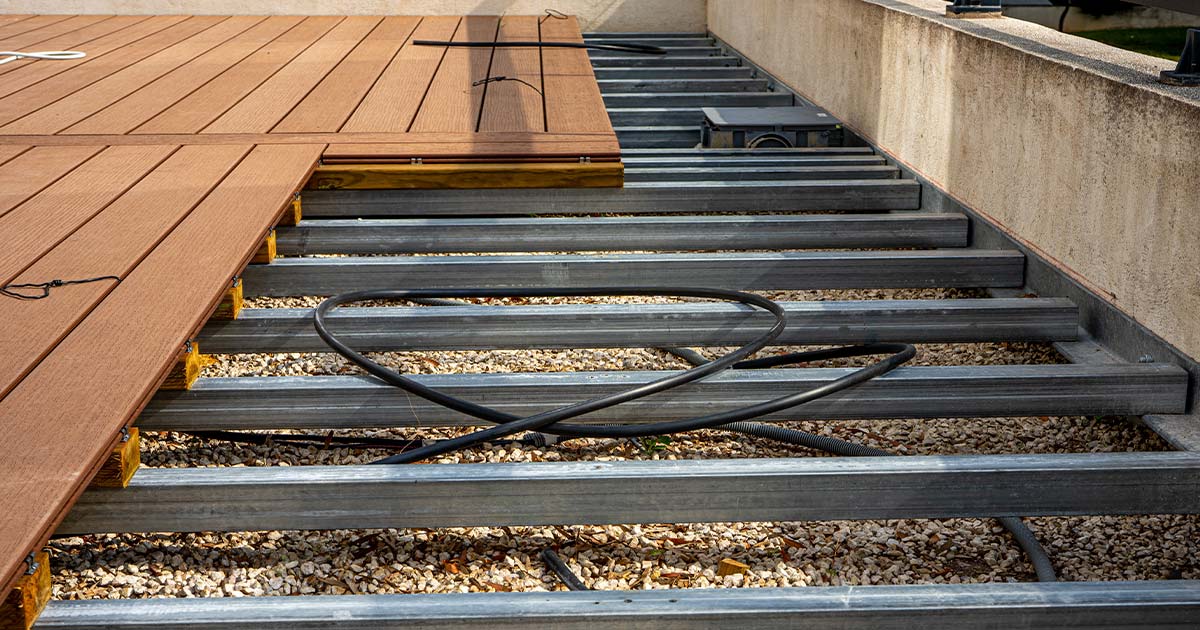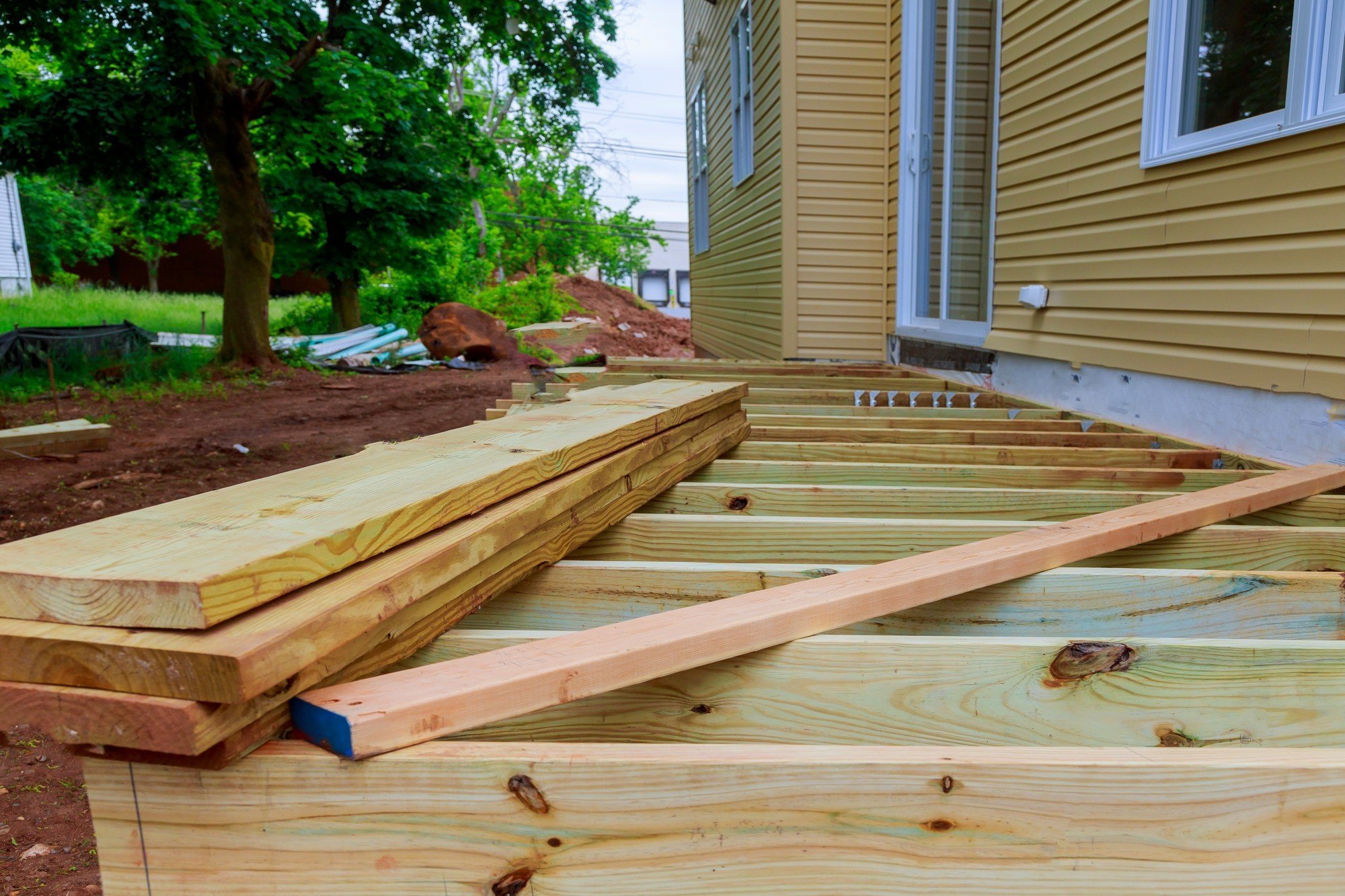Hiring an experienced deck installer Austin is the first step toward creating your ideal outdoor space.
Hiring an experienced deck installer Austin is the first step toward creating your ideal outdoor space.
Blog Article
How to Pick the Right Materials for Your Deck Setup Task
Picking the ideal materials for your deck installment task can seem difficult. The secret is to balance your spending plan, layout preferences, and lifestyle requires to produce a deck that will boost your exterior area for years to come.
Understanding the Various Kinds of Deck Materials
When beginning on a deck installment task, the selection of materials ends up being a pivotal choice. Composite products, on the various other hand, are a mix of timber and plastic, providing toughness and resistance to weather components. By recognizing these differences, homeowners can make a more informed decision on the most suitable deck material for their specific needs.
Assessing the Sturdiness and Upkeep Demands of Deck Materials
Examining the sturdiness and maintenance demands of deck materials is a crucial action in deck setup. Resilience entails the material's ability to stand up to severe climate conditions, wear and tear, and its longevity.
Comprehending upkeep demands is just as important. Some materials call for normal securing or discoloring to maintain their look and resist wetness damages, while others, like composite decking, require much less upkeep. By reviewing these factors, one can select one of the most suitable outdoor decking product, making sure an equilibrium between longevity, maintenance requirements, and visual allure.
Cost Evaluation: Contrasting Timber and Composite Decking
Although price might originally seem like an additional problem, it is a considerable aspect when contrasting timber and composite decking. Wood, typically a cheaper option, has a lower in advance price. Over time, maintenance costs can collect, possibly making timber more costly in the long run. These maintenance expenses may include discoloration, sealing, or replacing damaged boards. On the other hand, composite decking, while more expensive originally, needs much less maintenance, potentially minimizing long-lasting prices. It's essential to bear in mind that composite outdoor decking isn't impervious to use and tear, and replacement prices can be high. Therefore, potential deck proprietors should consider their budget and determination to maintain their decks when deciding in between wood and composite decking.
Aesthetic Appeals and Design Versatility of Decking Products
While expense is an essential consideration, the visual allure and design adaptability of outdoor decking materials likewise play a significant function in the decision-making procedure. Various materials provide differing degrees of aesthetic charm. All-natural timber decking provides a traditional, ageless appearance, while composite products offer a broad variety of colors and structures to fit varied preferences and designs. Likewise, layout adaptability describes the capacity to form and adjust the outdoor decking product to meet specific design requirements. Wood, for instance, offers high layout adaptability as a result of its convenience of reducing and shaping. Composite materials, while much less adaptable in style, are still adaptable enough for most deck layouts. These variables, therefore, are essential determinants in the choice of outdoor decking product.
Ecological Impact of Decking Products
When choosing outdoor decking materials, one have to think about not only visual appeals and durability, yet also the ecological impact. It is essential to evaluate the sustainability of products and explore recycled decking alternatives. Understanding the prospective influence on local environments will certainly ensure a much more eco responsible choice.
Examining Product Sustainability
In the realm of deck construction, examining material sustainability is a crucial action. Composite decking products frequently incorporate timber and plastic, decreasing the demand for new hardwood however increasing reliance on fossil gas - deck installation austin tx. Hence, the choice of outdoor decking materials must balance performance, aesthetics, expense, and sustainability to ensure an accountable and durable installation.
Recycled Outdoor Decking Options

Compound decking is especially preferred due to its longevity and simplicity of upkeep. It's immune to rot, insects, and fading, making it a resilient alternative. Recycled plastic decking, on the other hand, is extremely resilient and needs marginal maintenance. While these materials may bring a greater first price, their longevity and decreased ecological influence make them a sensible investment for the eco-conscious house owner.

Influence On Local Environments
While the advantages of making use of recycled materials for decking can not be overemphasized, it's equally vital to think about the broader ecological implications of these options. Proper disposal of old outdoor decking is vital to decreasing landfill waste. Basically, an eco-conscious deck project needs mindful material option, sustainable sourcing, and accountable disposal.
Making Your Decision: Tips for Selecting the very best Deck Materials
As the article transitions right into the subtopic of "Making Your Decision: Tips for Choosing the very best Deck Materials", it is crucial to comprehend the selection of deck materials offered. Striking an equilibrium in between sturdiness and aesthetics is vital in this option process. The complying with conversation will certainly guide readers in making an educated option based upon these key considerations.
Comprehending Various Deck Products
The task of choosing the right products for your deck setup can seem intimidating because of the huge variety of alternatives readily available. Nonetheless, recognizing the various products can simplify this process. Wood is a popular choice, offering a timeless visual and cost. Sorts of wood used consist of pressure-treated lumber, cedar, and redwood. Compound materials, made from a mix of wood and plastic, are low-maintenance and resistant to rot and pests. Plastic or PVC decks are a lot more durable and call for much less maintenance than composite materials, yet they can look here look less natural. Last but not least, light weight aluminum decks are strong, lightweight, and immune to rot, however they are also one of the most costly option. Each product has its own advantages and disadvantages, making it essential to consider your specific requirements before making a decision.
Resilience vs. Aesthetics Balance
Stabilizing resilience with appearances can be a challenge when choosing deck products. The decision typically comes down to personal preferences and the deck's meant usage. High-traffic locations may require long lasting products like composite decking, which endures damage yet might lack over at this website the natural charm of timber. On the various other hand, timber offers a timeless charm and warmth that artificial products battle to reproduce. It calls for extra upkeep and might not last as long. Property owners need to strike a balance, considering both the deck's useful demands and their visual choices. By doing so, they can guarantee their deck continues to be a practical and appealing outside space for years to come.
Conclusion
In final thought, picking the best products for your deck installment project needs cautious factor to consider of elements such as toughness, upkeep, cost, looks, and ecological impact. Whether you go with conventional timber or composite products, your selection must straighten with your budget, design preferences, and way of life. Eventually, the most effective outdoor decking product is one that boosts your outdoor space and offers pleasure for many years resource to find.
Report this page